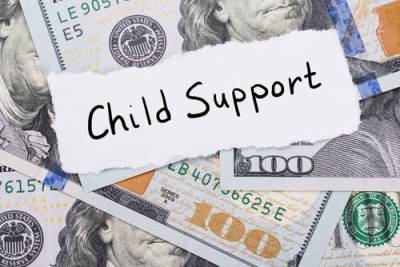Child Support Lifespan: How Long Is a Noncustodial Parent Required to Pay Support?
 For both the custodial and noncustodial parent following a divorce or separation, understanding child support monetary arrangements is very important, as the arrangements affect both parties and the entire family, often for many years to come. From your personal financial standing and your ex-spouse’s paycheck to the everyday needs of your children, a child support order usually brings about significant financial changes for everyone involved.
For both the custodial and noncustodial parent following a divorce or separation, understanding child support monetary arrangements is very important, as the arrangements affect both parties and the entire family, often for many years to come. From your personal financial standing and your ex-spouse’s paycheck to the everyday needs of your children, a child support order usually brings about significant financial changes for everyone involved.
How Long Does the Financial Obligation Remain in Effect?
In the state of Illinois, the lifespan of the financial assistance custodial parents receives child support depends on various factors. Generally, the state has some very clear guidelines that help clarify when child support officially ends. First, support is ordered until the youngest (or only) child reaches the age of eighteen or high school graduation, whichever last occurs, which is considered by Illinois law to be the legal age of emancipation. Second, the noncustodial parent may be required to make support payments for as long as it takes to pay off any past-due support. This means that even if the child reaches the age of emancipation, payments may still continue until all past-due support has been paid in full.
As the noncustodial parent ordered to pay support, when are you released from your duty? In short, each party's income, along with the number of children you have to support, will determine the amount you are required to pay, and you will be held responsible for those payments until your child is no longer a minor. An exception to this guideline is extended support, which may be ordered by the court in order to wait until the child graduates high school or turns nineteen. Any other exceptions or amendments must be clearly agreed upon in writing or addressed in the judicial order.
Additional Responsibility
Noncustodial parents should note that as a part of their child support order, they may also be required to provide health insurance coverage for the child, either through enrollment in their employer plan, by obtaining private health coverage, or by paying specified amounts to cover any health care needs that arise.
Child support payments are carried out via wage withholding, as Illinois law requires the funds to be deducted from the noncustodial parent’s income. Once the support order goes into effect, the employer is required to deduct the ordered amount from the very first paycheck within fourteen business days. The state offers a range of payment options, making it easier for the paying party to stay on top of their responsibility.
Support Order Concerns
Child support orders ensure children are provided for and that the custodial parent has what he or she needs to provide basic day-to-day care for the family. If you are struggling to obtain proper child support from your former partner or feel your support order is unjust or incorrect in some way, you will benefit from speaking with a knowledgeable Kane County child support lawyer. Arm yourself with the resources you need to move forward. Call Shaw Sanders, P.C. today at 630-584-5550 for a personal consultation.
Source:
https://www.illinois.gov/hfs/ChildSupport/FormsBrochures/Pages/hfs1759.aspx

 630-584-5550
630-584-5550







 630-584-5550
630-584-5550